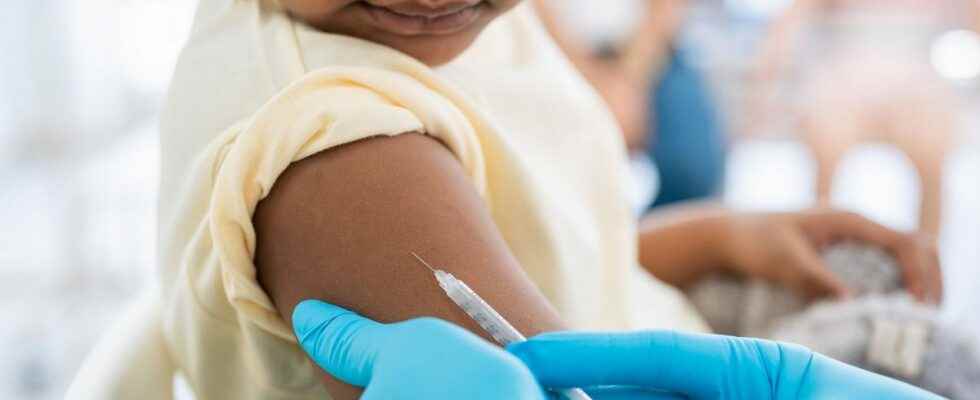Published on
Updated
Reading 2 mins.
in collaboration with
Dr Gérald Kierzek (Medical Director of Doctissimo)
Medical validation:
September 13, 2022
This promising new vaccine tested in Nanoro, Burkina Faso, is said to be 80% effective.
According to the WHO, more than 241 million people suffer from malaria worldwide. A potentially fatal disease, caused by parasites transmitted by mosquito bites. However, great news: researchers at the University of Oxford have just developed a brand new vaccine targeting the famous parasites. The results of the trial appeared in the journal Lancet Infectious Diseases.
Up to 80% protection against malaria
To arrive at a conclusive rate of effectiveness, the scientists conducted a vaccine trial in Nanoro (Burkina Faso), on 409 infants, aged 5 to 17 months. All received three initial doses followed by a booster one year later.
At the end of the test, the results showed that this vaccine regimen offered children “up to 80% protection” against the disease. For researchers, this is a real scientific feat:
” We sincerely believe that these data resulting from our field experience are the best obtained to date (…) proudly points out Professor Adrian Hill, director of the university’s Jenner Institute.
In the coming weeks, the research team will confirm these initial positive results with a larger trial; including this time nearly 4800 children.
The professor points out that the vaccine is particularly cheap. It would indeed cost only “a few dollars”.
A price, which already interests many health actors. The laboratory has thus succeeded in winning a contract which will enable it, in the long term, to manufacture more than 100 million doses per year.
The ‘R21/Matrix-M’ malaria vaccine – made by British multinational GSK – targets the first stage of the parasite’s life cycle by intercepting it before it reaches the liver and takes up residence in the body.
A real scientific feat since malaria parasites have a very complex development. They go through different stages and change form inside the organism, which complicates the work of researchers.
With this vaccine, scientists strongly hope to reduce “ this horrible burden of malaria which mostly kills children under 5 in Africa.
“We hope this will be available and deployed by the end of next year, and that it will save lives. “, concludes the director of the institute, before adding” that he could really change the world “.
